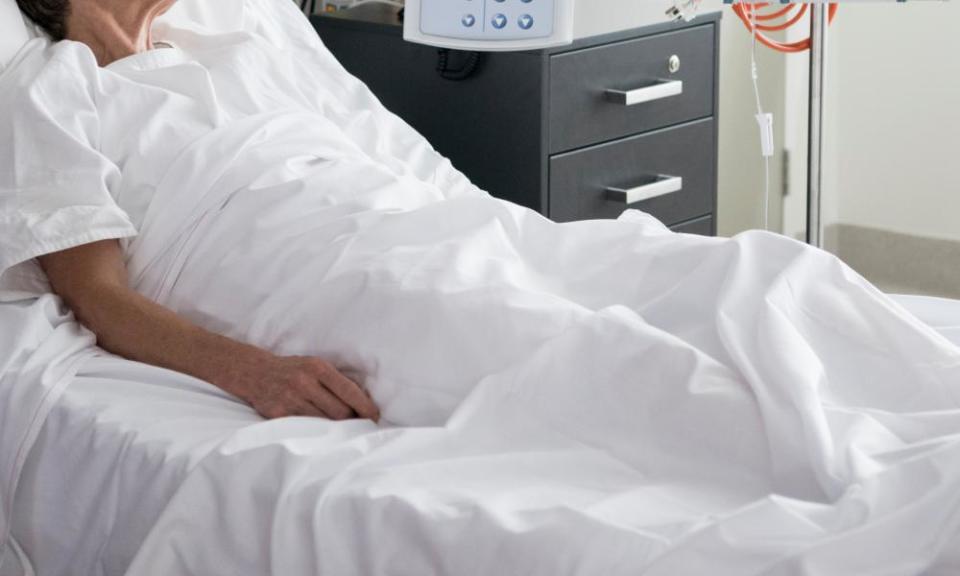A minority patient struggled to be heard. She's not the only one

A woman is admitted to hospital. Fortunately, a serious ailment is excluded but she will still need a prolonged period of recovery.
She is soft-spoken, elderly and belongs to a minority group. She speaks adequate conversational English but medical exchanges are a whole other matter, rendered all the more vexed by doctors speaking from behind masks during the pandemic.
Given highly restricted visiting hours and hence opportunities for interpretation and advocacy, her family encourage her to become her own best agent: able to explain her symptoms, ask questions and, most importantly, speak up instead of nodding agreeably and wondering afterwards.
Her doctor tells her she will need some basic blood tests, but when the family says that she had them only hours ago with her GP, he agrees they will suffice. She’s relieved to be spared the bruising in the aftermath of failed needles.
Related: How a trust breakdown left Melbourne's minority communities hardest hit by Covid second wave
The next morning, however, the patient is awoken from her sleep by pathology.
“My doctor said I don’t need bloods,” she says, furnishing a list of recent tests on her phone to ensure she’s being clear.
“I have an order.”
“I don’t want another test,” the patient insists.
The pathology collector informs the nurse, who arrives annoyed. She scolds the patient for being obstructive and insists that she must have the test (ordered by a different doctor who’d ducked in and out, without engaging the patient.)
In light of the patient’s advancing age, the likelihood of increasing hospitalisation, and the impossibility of always having an advocate at the bedside, it has been drilled into her that as long as she is competent, she can decline a drug, a scan or an intervention until she understands why. If all else fails, she should call her family.
The patient, determined to roadtest this assertion, moves to dial her family but the nurse says no and, in the worst insult to patient autonomy, tells the patient that she must do as told. Dismayed and defeated, the patient offers her arm and the blood is drawn.
Later she receives an apology, but tells her family that when it comes to health matters there is no point protesting, you just do as “they” say. It’s the kind of thinking that makes a mockery of patients’ rights.
One might say it’s “only” a blood test, done thousands of times a day, often against a patient’s wishes. If every patient needed cajoling or a family at hand, professionals would accomplish little else. And anyway, the nurse was simply following orders. But these justifications miss the point.
For a start, unnecessary tests are rife, bad for the patient and costly to society.
But more importantly, a lack of agency is contagious. A patient who is rebuffed over a blood test will one day consent meekly to things far more consequential. Many patients have told me that they’re having major surgery because they have no choice. Sometimes they mean they’ve considered the alternative and abandoned it. But far too often, they mean it literally – they were not given a choice.
There is some evidence that minorities are more likely to get unnecessary, economically inefficient and potentially harmful healthcare.
Concerningly, healthcare professionals may also exhibit a subconscious preference for white patients over minorities and believe that they are more medically cooperative, which may impact treatment recommendations.
Regardless of the patient, I’d have found the incident troubling but the fact that it happened to an acquaintance underlines just how difficult it is for the patient’s voice to rise above the din even when there is help at hand. Thinking about her potential stereotyping and the harm done to her confidence brings to mind another public healthcare debate concerning minorities.
In July last year, concerned about a Covid-19 cluster, the Victorian government placed 3,000 residents of nine public housing towers in Melbourne under a hard lockdown without warning. Many of the residents, who were overwhelmingly marginalised, migrant and vulnerable, including refugees and domestic violence victims, learned of their predicament under heavy police guard.
Government documents defended the decision to protect the larger community against the “vicious” virus. The unspoken assumption seemed to be that residents with poor literacy and English skills would try to evade lockdown. Days later, the entire city went into lockdown, this time with notice and exceptions. Unsurprisingly, people with money, education and resources were among those who flouted the rules.
The Victorian ombudsman found that the government’s actions had breached the human rights of the tower residents. The government disagreed, lauding its success at curtailing spread. But the ombudsman rightly asked how Melbourne’s five million residents would have reacted if they too had been locked down without any warning.
She cautioned, “In a just society, human rights are not a convention to be ignored during a crisis, but a framework for how we will treat and be treated”.
When the pandemic recedes, another challenge will take its place. Front of mind for many is delivering the Covid vaccine to everyone while maintaining ethically justifiable prioritisation. The pandemic has laid bare the socioeconomic and access disparities that underpin the disproportionate suffering among minorities.
It will take a deliberate and inclusive approach from government and public health officials to ensure skilful and trustworthy communication about the why and how of vaccination. An air of “we know best” simply won’t do. It never does.
After the incident, the patient was transferred to another facility, where she tried new things, including saying, “Can you repeat that, slowly?”, and was heartened when people listened.
But there is one question that no one was able to answer.
“What did my blood test show?”
No one knew and no one found out. Her experience was far too common, and the results had never mattered. The wheels of the system simply kept turning.

 Yahoo Finance
Yahoo Finance 